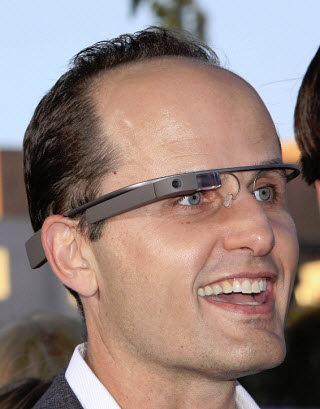These augmented reality glasses are being tested for use with medical conditions.
Starting at the end of last week, the emergency department at Rhode Island Hospital became the first one in the country to start to use Google Glass and its associated wearable technology for streaming live images of the medical conditions of the patients who were being seen there, in order to be able to consult with a specialist who was located somewhere other than in the hospital.
This is the start of a feasibility study that is meant to test the augmented reality glasses for six months.
Should the use of the Google Glass prove to be successful, Dr. Paul Porter, the project coordinator, believes that the use of these mobile devices will only expand in the medical arena. Potential users could include first responders in ambulances, surgeons, and others who could benefit from the recommendations of specialists while they are on the field or when there is no local specialist available.
Porter is highly enthusiastic about the possibilities for Google Glass in the health care environment.
He stated that it would be “like the Holy Grail” but added that “we’re just at the beginning; you have to start somewhere.” At the moment, the hospital will continue to test this wearable technology exclusively with emergency room patients who are suffering from various forms of dermatological struggles, such as skin rashes. These patients must volunteer to be a part of the study as opposed to being automatically entered into it.
The reason is that Porter feels that the standard of health care at the moment makes it so that handling these types of problems within an emergency room typically involves a basic visual inspection while asking the patient certain types of questions such as whether or not it is itchy, painful, etc.
The reason that these specific types of cases have been chosen for testing Google Glass in the emergency room is that if any glitches should occur within this wearable technology – such as a loss of the connection for audio or video – then the life and health of the patient will not be placed at risk.
Intel steps into the field of wearable devices with acquisition of Basis Science
Wearable technology has become a hot issue. Technology firms around the world have begun investing in the research and development of smart watches and other sorts of wearable devices that may become popular with consumers in the future. Intel is one such firm, and the company has recently finalized the acquisition of Basis Science, makers of health tracker technologies. Health has become a popular field for wearable devices due to the increasing mobility of consumers. These devices could be helpful for people that want to keep track of information concerning their day-to-day health.
Basis attracts attention from technology firms for its wearable device
Basis suggests that it has been approached by various technology companies in February, all seeking acquisition. Interest from these firms is largely focused on the company’s Basis Health Tracker, which is a watch that keeps track of a user’s heart rate and other information. The watch is the only product that Basis has produced, but it has become quite popular because it exists as a convenient solution for those that are health-oriented.
Intel intends to establish a presence in the emerging wearable device market
 Intel has a strong interest in wearable devices because of trends that have begun to emerge among consumers. Google Glass has managed to highlight the interest that consumers have in wearable devices. These augmented reality glasses have generated a great deal of hype and have also shed light on similar products being developed by other technology firms. The demand for smart watches is also on the rise and Intel is keen to ensure that it can establish a noticeable presence in an emerging market.
Intel has a strong interest in wearable devices because of trends that have begun to emerge among consumers. Google Glass has managed to highlight the interest that consumers have in wearable devices. These augmented reality glasses have generated a great deal of hype and have also shed light on similar products being developed by other technology firms. The demand for smart watches is also on the rise and Intel is keen to ensure that it can establish a noticeable presence in an emerging market.
Wearable devices may not replace smartphones any time soon
Some firms have suggested that wearable devices will eventually replace smartphones and tablets. The issue, however, is that wearable devices are still in a state of infancy. They do not have the technical abilities needed to dethrone smartphones as t he favored mobile device among consumers. In the future, this may change, but wearable devices may currently be little more than a gimmick.


 Intel has a strong interest in wearable devices because of trends that have begun to emerge among consumers. Google Glass has managed to highlight the interest that consumers have in wearable devices. These
Intel has a strong interest in wearable devices because of trends that have begun to emerge among consumers. Google Glass has managed to highlight the interest that consumers have in wearable devices. These 